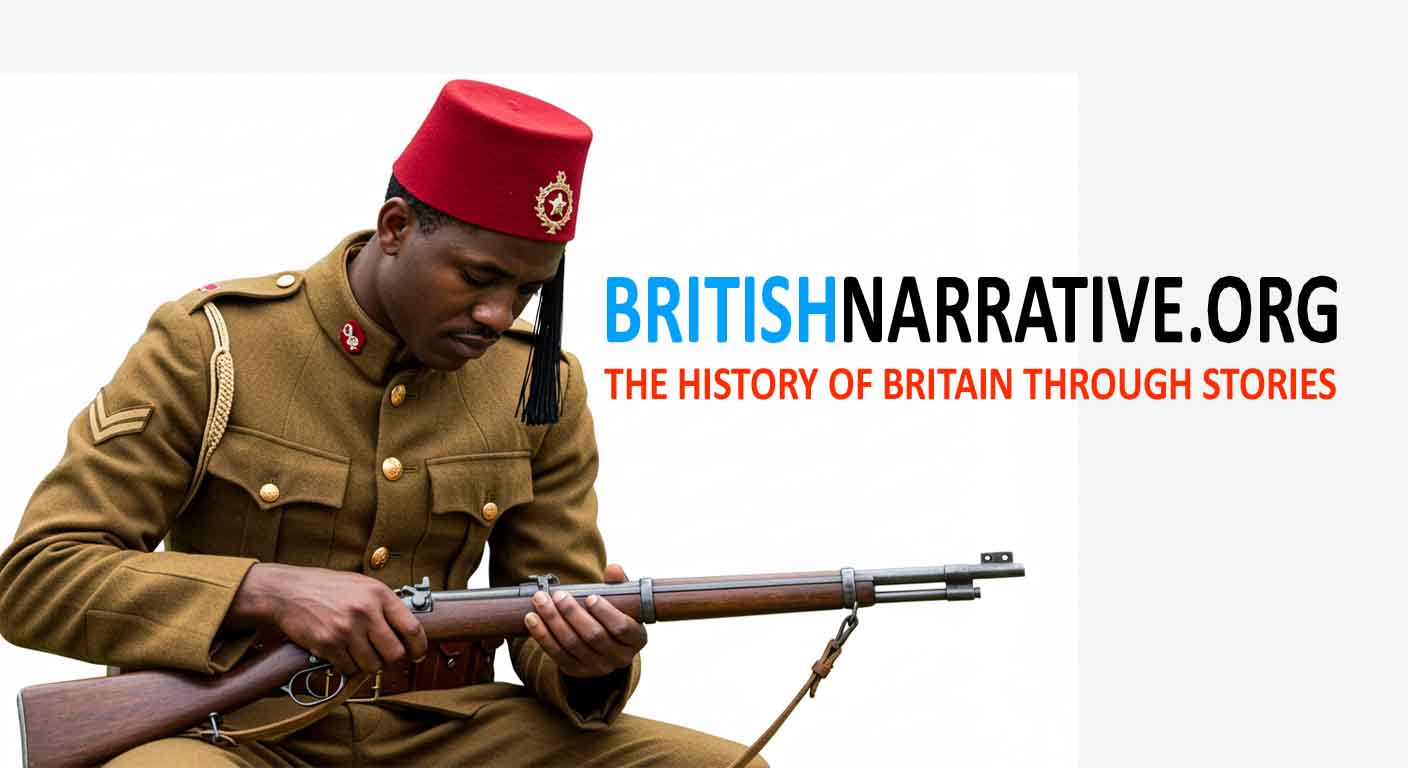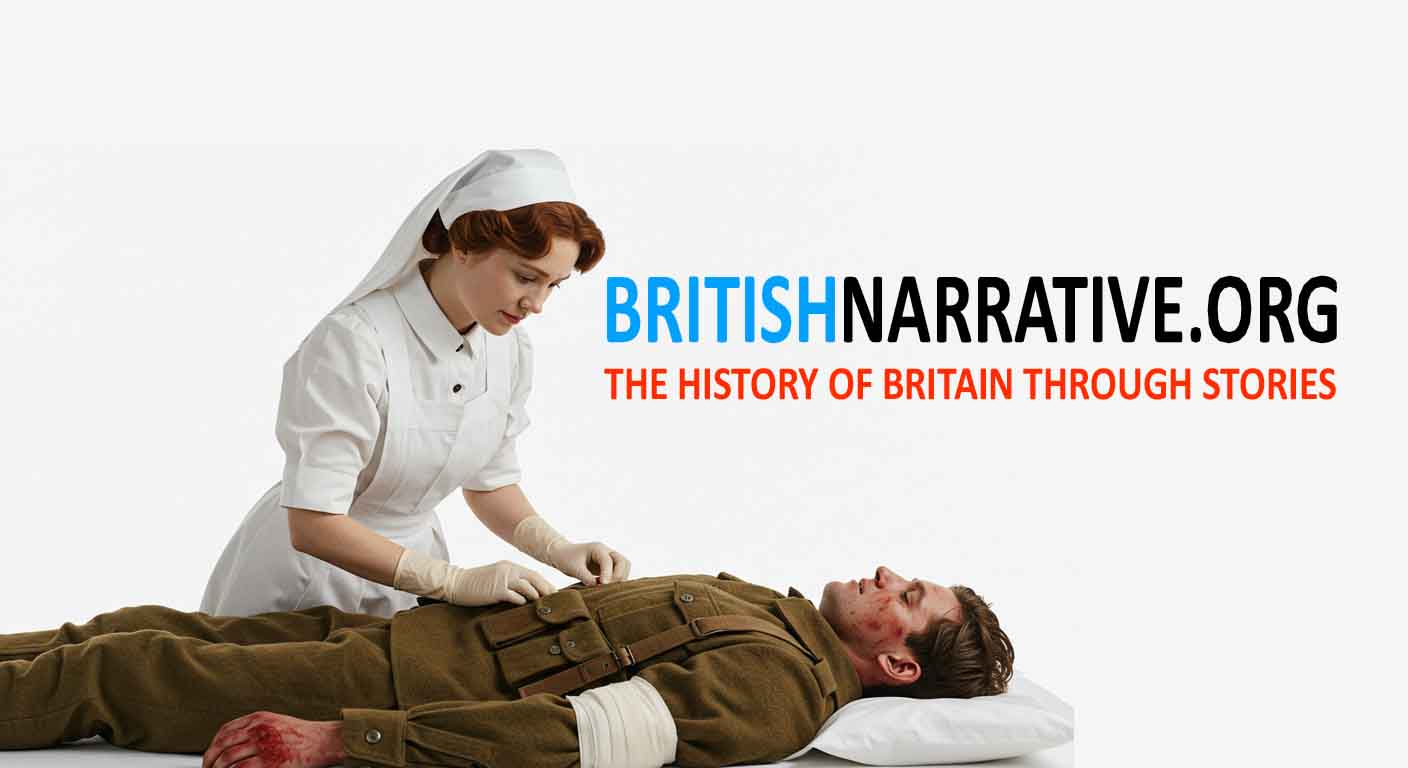The sun, a relentless eye in the vast, pale sky, beat down on us as we marched. It was a heat that burrowed into your bones, even through the thin khaki drill of our uniforms. Dust, the colour of dried blood, rose in clouds with every step, coating our fezzes, clinging to our skin, and scratching at our throats. My name is Kiprono arap Chepkwony, and in the year 1917, I found myself a soldier in the King’s African Rifles, specifically the 3rd Battalion, far from the rolling hills and familiar sounds of my Nandi home.
I had been conscripted in early 1916, a decision made for me, like so many others. One moment, I was tending cattle, listening to the elders’ stories by the fire; the next, I was learning to march in step, to load a Lee-Enfield rifle, and to understand the harsh commands of the bwanas – the British officers. Life in the KAR was hard, a constant cycle of marching, digging, and the ever-present threat of the Askari – the German native troops who, like us, fought with fierce determination for their foreign masters. We had been pursuing the elusive German commander, von Lettow-Vorbeck, and his force of Schutztruppe for what felt like an eternity across German East Africa. Every day was a testament to endurance.
October of that year found us deep in the wilderness, the air thick with the smell of sweat, fear, and the distant promise of battle. We had received intelligence that von Lettow-Vorbeck was dug in near a place called Mahiwa. The officers spoke of a decisive blow, an end to this long chase. Hope, fragile as a spider’s web, flickered amongst the men, the hope that perhaps, after this, we might truly go home. But there was also a heavy sense of foreboding. We knew the Schutztruppe fought well, and their commander was cunning, like a leopard in the tall grass.
The day before the assault, the camp was filled with a nervous energy. The usual sounds of chirping insects and distant birds were replaced by the clinking of equipment, the hushed conversations of men checking their rifles, and the low, guttural murmur of prayers in various tongues. I found myself thinking of my mother’s voice, the smell of her cooking fire, and the laughter of my younger brothers. Would I ever see them again? Such thoughts were dangerous. They softened a man when he needed to be hard. I pushed them away, focusing instead on the feel of my rifle in my hands, its familiar weight a strange comfort.
The attack was planned for the morning of the 17th. We were to advance through thick bush, pushing towards the German lines. Our company was part of the main thrust, and as the first light began to paint the sky a sickly grey, we formed up. The air was cool for a moment, a brief respite before the sun would rise and begin its relentless assault. I could feel the tremor in my hands, a cold knot in my stomach, but I swallowed it down. Beside me, Juma, a quiet man from the coast, adjusted his fez. His eyes, usually serene, held a flicker of something I recognized – fear, yes, but also a grim resolve.
“Are you ready, my friend?” he whispered, his voice hoarse.
I nodded, unable to speak. My mouth was dry.
Then came the whistle, shrill and piercing. “Advance!” The order rippled down the line. We moved forward, slowly at first, then picking up pace, pushing through the tangled undergrowth. The sounds of our movement were surprisingly loud in the stillness – the rustle of leaves, the crunch of dry twigs under our boots, the jingle of equipment. Each step felt like a drumbeat echoing in my ears, counting down to something inevitable.
Suddenly, the world exploded. Machine guns opened up with a terrifying chatter, tearing through the foliage around us. Rifle fire joined in, a symphony of death. The air was instantly filled with the whizzing of bullets, the smell of cordite, and the screams of men. I saw the man in front of me crumple, a sudden, unnatural heap on the ground. There was no time for thought, only instinct. I dropped to one knee, bringing my rifle to my shoulder, searching for a target in the thick smoke and dust.
The German positions were well-concealed, their lines dug in deep, almost invisible until they fired. It was a nightmare. We pushed forward, then were pinned down, then pushed again. The sun climbed higher, relentless, mirroring the heat of the battle. My uniform was soaked with sweat, my eyes stung from the dust and smoke. The screams of the wounded were everywhere, a terrible chorus that would haunt my dreams for years to come.
I remember firing, reloading, firing again. My shoulder ached, my fingers fumbled with the cartridges. There was a moment, a blur of movement, when I saw an Askari emerging from the smoke, his bayonet fixed. Fear, pure and primal, surged through me. I instinctively raised my rifle, and with a desperate lunge, thrust forward. The impact was sickening, a dull thud. He fell, and I recoiled, my heart pounding like a war drum in my chest. I didn’t look back. There was no time.
The noise was deafening – constant rifle cracks, the rhythmic stammer of machine guns, the terrifying whistle of shells overhead before they burst with an ear-splitting roar, sending splinters of metal and earth flying. We were being cut down. Men around me were falling, some with a cry, some silently, their bodies twitching for a moment before becoming still. Juma, my quiet friend, was hit in the leg. I saw him fall, clutching his thigh, his face contorted in pain. I wanted to go to him, to help, but the officer’s shouted commands, the sheer pressure of the advance, forced me onward. You learned quickly that in battle, hesitation meant death for yourself and potentially for others.
Our officers, the bwanas, were brave, leading from the front, their voices hoarse from shouting orders. Some of them fell too, their pith helmets rolling in the dust. The ferocity of the German resistance was astonishing. Every tree, every bush seemed to hide an enemy rifleman. We fought through the day, hours blurring into an eternity of fear and exhaustion. My vision narrowed, my world becoming nothing but the patch of ground in front of me, the next enemy position, the next order.
As dusk began to fall, painting the bloody sky in shades of orange and purple, the firing slowly, gradually, began to subside. Exhaustion, a bone-deep weariness, settled over us. We had taken the German positions, but at a terrible cost. The battlefield was a scene of utter devastation. Bodies lay scattered amongst the torn bush and shattered trees, a grim testament to the day’s brutal fighting. The air was thick with the stench of death, mingling with the lingering smell of cordite and the dust of the churned earth.
The wounded were being attended to, their groans filling the twilight. I searched for Juma, my eyes scanning the faces, the crumpled forms. I found him, propped against a tree, his leg bandaged crudely. He was pale but alive. A wave of relief, so potent it almost buckled my knees, washed over me. We spoke in hushed tones, the words feeling insignificant against the immensity of what we had witnessed.
The Battle of Mahiwa. The bwanas later called it a tactical victory, but it felt like a defeat. We had pushed the Germans back, yes, but we had lost so many. So many of my comrades, men who had shared my fears, my meager rations, and my dreams of home, were now silent, their journeys ended in this hot, dusty hell.
In the days that followed, the scale of the losses became clear. Our battalion, like many others, was decimated. More than half of us were gone – killed, wounded, or missing. The faces around me were different, new recruits hastily brought in to fill the gaping holes left by the fallen. We were still chasing von Lettow-Vorbeck, but the fight had changed us. It had hardened us, yes, but also left a deep, aching wound in our souls.
I survived Mahiwa, but a part of me was left on that blood-soaked ground. The sounds, the smells, the faces of the fallen – they etched themselves into my memory. We continued to fight, to march, to endure, but the innocence, if I ever truly had it, was gone. The war would eventually end, and some of us would return home, carrying invisible scars alongside our visible ones. And for the rest of my days, the name Mahiwa would evoke not a place on a map, but the raw, visceral memory of a battle where so many of us, African soldiers in a foreign war, paid the ultimate price.


